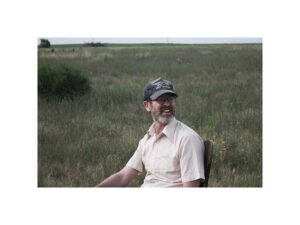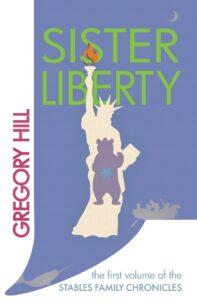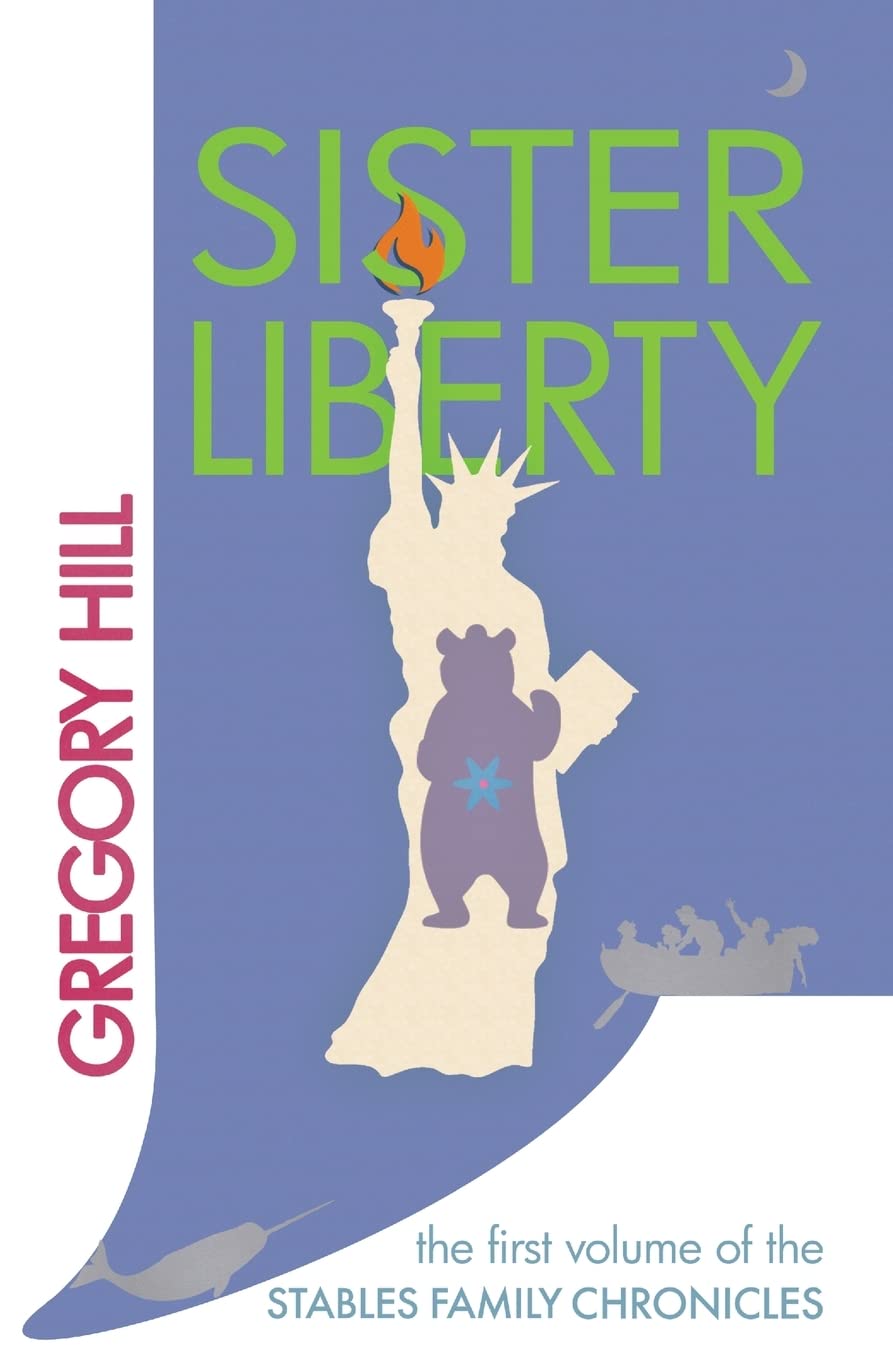Sister Liberty and the Solemnites
Honora, Gravity, Temperance and a bunch of wacky Hoosiers
Honora, Gravity, Temperance and a bunch of wacky Hoosiers
If you have ever wondered about the best possible way to travel from France to America in the 1800s and yet never thought about stowing away on a cargo ship in a large wooden box containing the head of the Statue of Liberty, then you are not Gregory Hill.
In his novel, Sister Liberty, Colorado author Hill deploys the boxed statue body part as the perfect hiding place for his bizarre ensemble of characters—a pair of young lesbian French widows, a frighteningly intelligent boy and a group of well-meaning American missionaries who called themselves Solemnites—as they cross the Atlantic Ocean.

Gregory Hill
The widow couple, Annie Lestables and Euphémie Deplouc, and the boy, Annie’s son Auguste, fled their town of Sanvisa, France, after Annie’s husband was executed for the murder of Euphémie’s abusive spouse. Arthur Pascal Lestables is hanged in the book’s opening for drowning the despicable bully Henry Deplouc (hanged with some haste, as the townsfolk were impatient to move on to their annual Strawberry Festival).
It’s a shame that Arthur is only with us for a short time. His story is as mesmerizing and outlandish as the others in the book. A wannabe intellectual, Arthur spent time in his youth working for Auguste Comte, a pompous philosopher on a lecture tour throughout France. Hired to transcribe every word the man uttered, even when he was sleeping, and, needing sleep himself, Arthur ultimately failed. When he was asked to provide his papers scribbled with his employer’s nonsensical musings, Hill writes, “A leaf of paper floated from the stack in his hand and alighted itself on the ground… The paper was decorated with a translation of what was either a Shakespearian sonnet or a recipe for borscht.” “Perfectly adequate,” is the boorish (and illiterate) man’s response.
But we digress, something Hill does with sly humor and considerable skill throughout the book, interspersed with what he calls Interludes—glimpses into deeper subjects to give his story more context—and occasional drawings. (Another Interlude tells the origin story of the Solemnites, that has to do with a coal miner juggling explosives with an unfortunate ending.)
The widows, who are joyously in love and freed of their husbands, make their way to a French harbor town where they meet the kind, odd women who call themselves Solemnites.
Sisters Honora, Gravity and Temperance are kind to the widows, and their children—Auguste (yes, named after the hapless philosopher of his father’s past) and Pansy, Honora’s young daughter—become instant friends.
“Pansy explained that she and the other Solemnites were from America, from a place called Indiana,” Hill writes. The sisters came to France because one of them could speak French  and “because France is notoriously immoral.”
and “because France is notoriously immoral.”
But they have been there a year, and they are headed back to America and their settlement, an obviously solemn place where followers only show their emotions by whistling. Not very adept at converting those they meet, the sisters hope that their new friends will join the Solemnite community when they eventually reach Indiana.
After a rollicking time at sea that involves a devastating storm and a narwhal dramatically swallowing one of the group, they reach Indiana where they are welcomed into the village.
The widows become accustomed to the whistling and a litany of taboos on general merriment and enjoyment and fall into new roles as the village’s chief cooks, creating simple food that Hill writes, “was hearty, simple and satisfying … There was some question about the food being too delicious. Could culinary satisfaction fairly coexist with a colony of strict Solemnites?” The answer, offered by their leader, a satiated Rev. Steadfast, is yes.
Soon the entire village is thrust into a frenzy of work, preparing for a massive All-Tent Revival promoted as a “Multi-denominational marketplace for God.”
Never complainers, the Solemnites dig in and start to build just as the plot thickens. A three-eared bear, a mysterious thief in the night, secret trysts for the widows and a handmade Wheel of Pleasure (Ferris wheel) all figure in.
Hill has a talent for telling a story with sometimes searing satire, but he also is skilled at descriptive writing. Of a still night in rural Indiana, he writes: “A windless evening settled over the village. The fireflies had begun to ignite, oil lamps were hung in open doors, shavings of green cherrywood smoldered … Prayers and ghostly whistles mingled with the buzz of lonesome frogs.”
In Sister Liberty, Hill manages to create an exuberantly lively story woven with social commentary about religion, race and sisterhood. Everything is fair game, but “nobody juggles.” Of course.
Deb Acord is a journalist and author from Woodland Park, Colorado. For decades, she wrote for The Colorado Springs Gazette, Rocky Mountain News, Denver Post and The Indy. At the Gazette, she was co-creator of Out There, a section devoted to the outdoors of Colorado. She is the author of Colorado Winter and Biking Colorado’s Front Range Superguide and has writtten car trend stories and environmental stories for Popular Mechanics.
Click here for more from Deb Acord.

